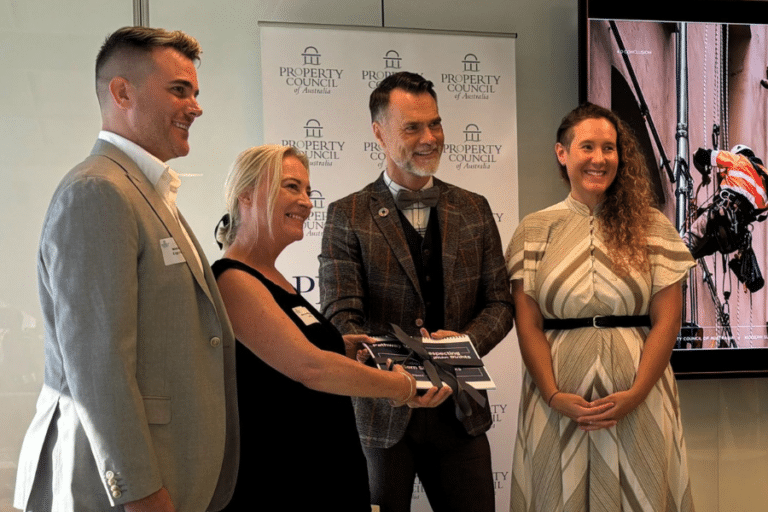
The Property Council of Australia has launched a ground-breaking new resource with Edge Impact, the ‘Pathway to Respecting Human Rights and Addressing Modern Slavery Risks’.
This project, released on International Day for the Remembrance of Victims of Slavery, is an outcome from the Property Council’s ‘Human Rights and Modern Slavery Working Group’, which has been meeting for over five years to consider how property and construction organisations can together tackle modern slavery.
The pathway is designed to give property and construction businesses and their suppliers practical and actionable steps for respecting human rights and tackling modern slavery, no matter the size of business or level of experience.
Across ten steps, the Pathway sets out guidance, examples, case studies and actions, with links to 58 free online resources that organisations can use to ensure continuous improvement.
Francesca Muskovic, Property Council, National Policy Director said the risks of human rights abuses in property and construction are high, but the property industry is coming together and collaborating to tackle modern slavery.
“Our sector employs over 1.4 million Australians, surpassing both mining and manufacturing combined, and has a responsibility to address the social impacts of our actions, both domestically and abroad,” she said.
“Our supply chains are intricate, spanning various geographic locations and tiers. It’s crucial to comprehend human rights and modern slavery risks within them to promote ethical and sustainable practices. We hope this report helps the industry build on the great work already done in this space.
“Businesses have an important role to play in respecting and upholding human rights. The property industry coming together through collaboration around key topics, such as remediation and grievance mechanisms, is vitally important.”
“Together, we can make our industry one that respects human rights and works to eliminate modern slavery.”
Modern slavery describes situations where intimidation, threats or deception are used to exploit people and limit or remove their freedom. These situations may include debt bondage, deceptive recruiting for labour or services, forced labour, forced marriage, servitude, slavery, trafficking in persons, and the worst forms of child labour.
According to the Global Slavery Index, published by Walk Free, an estimated 50 million people were living in modern slavery on any given day in 2021, an increase of 10 million people since 2016. Each day, people are tricked, coerced, or forced into exploitative situations that they cannot refuse or leave. Each day, we buy the products or use the services they have been forced to make or offer without realising the hidden human cost.
Robin Mellon, Better Sydney, CEO, as Project Manager for the Working Group, said , “A comment we hear often from property and construction suppliers is ‘Show us what you want us to do around modern slavery – clearly and simply – and we’ll see what changes we can make’, and the Pathway is doing just that.
“By clarifying the complex issues of human rights, exploitation and modern slavery into ten steps, with case studies, actions and learning resources, we’re giving suppliers a pathway towards continuous improvement.”
Some challenges in this sector that may expose a business to human rights risks include:
- Complex supply chains make it hard to know where goods come from and under what conditions they are made.
- When businesses outsource and subcontract work and labour, the companies they use may not respect the rights of their workers.
- The demanding nature of manual labour, long hours and tight deadlines could lead to unhealthy or unsafe practices.
- It’s common to use migrant labour in construction and language barriers can affect a worker’s understanding of their rights.
- Using raw materials from locations with a higher risk of human rights issues could lead to modern slavery occurring in your supply chain.
Ms Muskovic said supply chains in Australia’s property industry are complex and multi-tired and the industry needs actionable steps to address human rights and modern slavery.
“The guidance and actionable steps outlined in the report will help foster increased transparency and enables the industry to identify areas of strength and weakness, educational resources and effective collaboration on key solutions.”
The pathway shares practical and actionable steps businesses can take and outlines obligations based on organisation size. It also helps businesses, and their suppliers understand and manage these responsibilities in a simple and effective way.